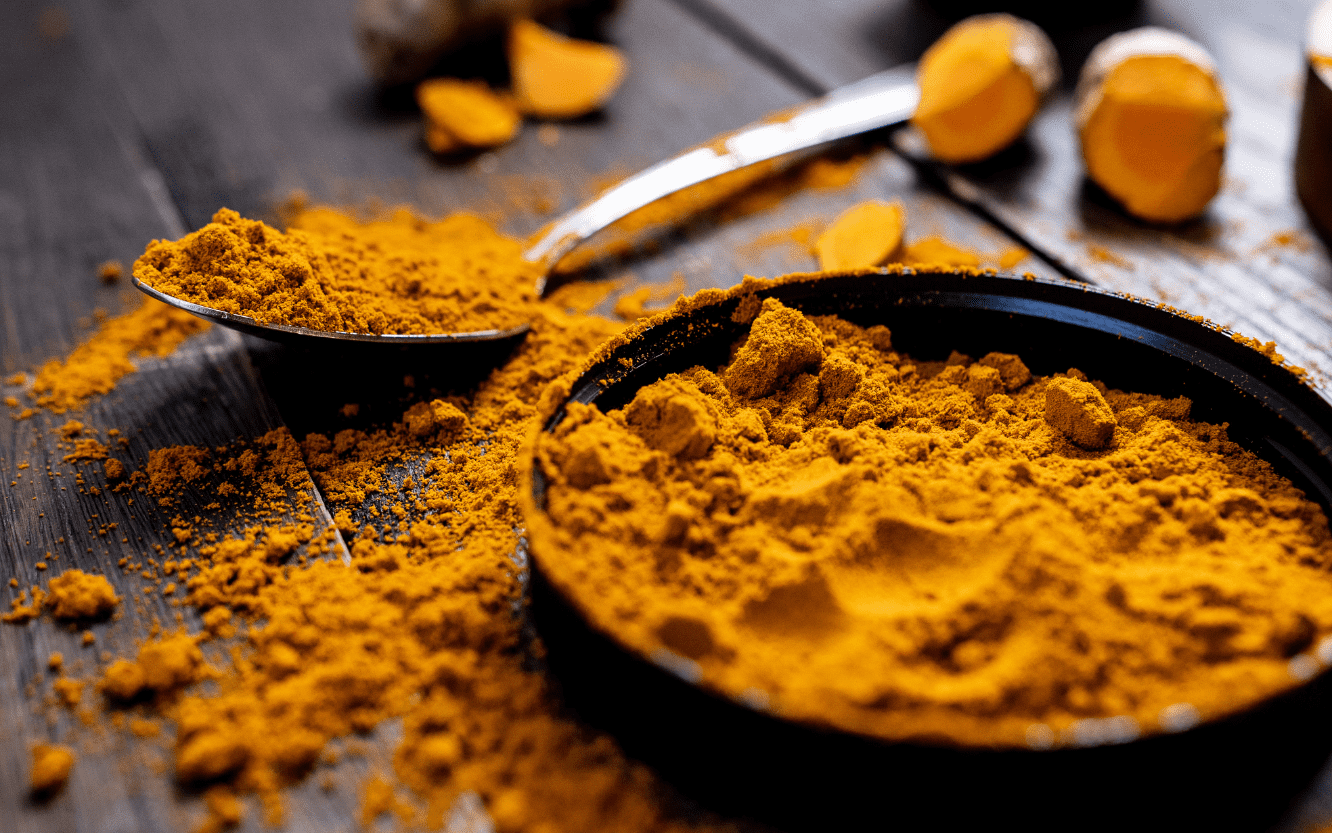Turmeric has earned a reputation as a superfood, and curcumin, its potent active component, is the reason why. Turmeric’s yellow hue, anti-inflammatory and antioxidant properties, and other health advantages are all attributed to curcumin.
Numerous scientific investigations have demonstrated that curcumin has strong anti-inflammatory qualities that are comparable to those of prescription medications like hydrocortisone but without the negative side effects.
Even degenerative eye diseases, metabolic syndrome, arthritis, and discomfort can all be treated with turmeric.
Here is a list of all the various health advantages of turmeric.
1. Potent Anti-Inflammatory Effects
Reduced inflammation in the body is one of turmeric’s most potent health advantages. It functions by removing several types of free radicals, such as reactive oxygen and nitrogen species. Additionally, curcumin supports the regulation of the body’s detoxification enzymes in action. Because inflammatory cells “free up” numerous reactive species at the site of inflammation, this has a significant impact on decreasing inflammation. This mechanism results in oxidative stress and inflammation as a result.
A recent systematic evaluation of taking turmeric supplements containing pure curcuminoids demonstrated that curcumin can also raise your body’s levels of antioxidants. Curcumin was found to have a potent impact on all levels of oxidative stress in the body. Turmeric has significant advantages for many people who suffer from painful or inflammatory health disorders, such as inflammatory bowel disease, Alzheimer’s disease, and cancer, as inflammation is one of the characteristics of chronic disease.
2. Antifungal and Antimicrobial
Infections in the body caused by bacteria or fungi may benefit from the use of turmeric. Numerous other fungi, including Candida albicans, were entirely inhibited from growing by curcumin, according to studies. Even fluconazole, a widely used antifungal medication, has been proven to be less efficient than curcumin at preventing Candida from attaching to human cells.
According to one study, adding ascorbic acid to curcumin increased its antifungal properties by up to 10 times. This shows that combining vitamin C pills with curcumin may aid in the much faster elimination of fungal infections. Turmeric’s capacity to enter a bacterial species’ cell and eradicate it from within justifies its usage as a food-safe antibacterial agent. It has been discovered that using turmeric formulations to clean counters, cutting boards, and knives can effectively destroy dangerous microorganisms.
3. Relieves Pain Caused by Inflammation
Due to turmeric’s anti-inflammatory effects, inflammatory diseases including osteoarthritis and rheumatoid arthritis may be less painful.
Inhibiting NF-KB, a molecule that regulates your body’s production of inflammatory proteins known as cytokines, is how curcumin exerts its action In essence, this indicates that curcumin has the ability to “turn off” a number of inflammatory chemicals. In fact, NF-KB is inhibited by corticosteroids, which are frequently administered to alleviate the symptoms of arthritis. Supplements containing turmeric can have a comparable impact, according to recent studies. Similar studies indicate that curcumin may also target particular inflammatory cells and block various types of inflammatory enzymes.
Studies on individuals with osteoarthritis of the knee discovered that daily curcuminoid supplementation for six weeks significantly reduced pain. The participants’ physical capabilities also significantly improved. It was also demonstrated that their overall oxidative stress decreased. The researchers hypothesized that Curcuminoids’ strong local anti-inflammatory properties were the cause of this. It seems that consuming standardized turmeric extract for a few weeks would be sufficient to ease the pain and inflammation associated with arthritis, and it might even be as effective as taking ibuprofen or diclofenac sodium.
4. Alleviates Symptoms of Metabolic Syndrome
It has been demonstrated that curcumin can help with the symptoms of metabolic syndrome, such as insulin sensitivity, fat deposition, hypertension, inflammation, and oxidative stress. Additionally, it has been discovered that the curcuminoids in turmeric extract can increase levels of good cholesterol while decreasing triglycerides and bad cholesterol.
In order to investigate the benefits of turmeric, researchers gave a group of patients with metabolic syndrome 1g of turmeric extract for 8 weeks along with piperine to help with absorption. Significant improvements were seen in the patients, including lower total LDL cholesterol and greater HDL cholesterol. They also demonstrated improvements in serum lipids, glucose, and inflammatory levels.
One of the most impressive health benefits of turmeric is that the authors came to the conclusion that it was a natural, secure, and efficient treatment for enhancing the health of persons with metabolic syndrome, primarily by lowering inflammation and oxidative stress.
5. Improves Cardiovascular Health
By enhancing the endothelium, the blood vessel lining, curcumin may assist to reverse numerous factors implicated in the evolution of heart disease. Since endothelial function affects blood pressure and blood clotting, it plays a significant role in heart disease.
Now, a number of studies have suggested that curcumin may be very advantageous to endothelial function. Curcumin supplements may offer advantages comparable to those of the medication Atovastin, according to some research, while other studies suggest it may be just as beneficial as physical activity. Additionally, curcumin seems to lessen oxidation and inflammation, two important contributors to heart disease and dysfunction.
Taking curcumin before and after coronary artery bypass surgery was found to reduce the chance of having another heart attack by 65% in a study involving patients.
6. May Slow the Effects of Aging
Even if there is no method to halt the body from aging, its detrimental consequences might be slowed down. The antioxidant capabilities of turmeric may be a significant factor in lowering the lifetime accumulation of molecular oxidation and damage.
Curcumin, a potent antioxidant and anti-inflammatory, may be able to delay aging. It increases the body’s supply of antioxidant enzymes while scavenging the free radicals responsible for oxidative stress. It also aids in preventing the oxidation of the lipids in the cell membrane, known as lipid peroxidation, which results in cell death.




